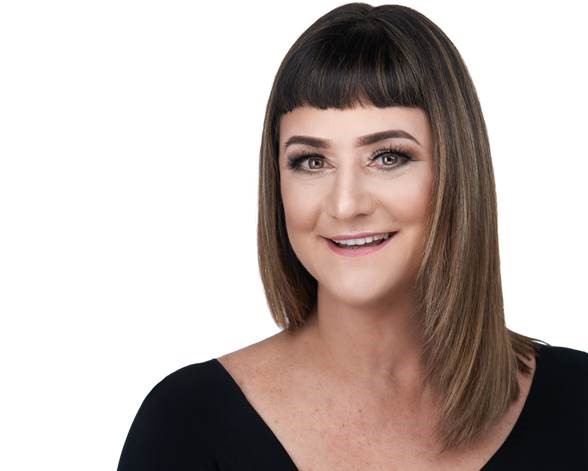Counselling
Early Alert Process Counselling Services Wellness Workshops Recovery on Campus Let's Talk Wellness Podcast
Student life can be challenging in many ways, but you do not have to face it alone. Keyano College has resources to support your mental health and well-being. Keyano students can get direct access to free, confidential counselling through Wellness Services.
Wellness Services is located at the Clearwater Campus, room 260. We are open Monday to Friday, 8:30 a.m. to 4:30 p.m., closing for lunch from 12:00 p.m. - 1:00 p.m.
| Learn how to book an appointment and access other support resources. |
Mental Health Coordinators Book An Appointment After Hours Support
Mental Health Coordinators
Our qualified team of mental health specialists is here to support you.
Some common issues we've helped with include:
|
|

Natali Levasseur, Registered Psychologist
Natali is a registered psychologist with 31 years of experience in clinical and school psychology. Fluent in French and English, Natali promotes mental health and wellness, leads many researched-based program at Keyano College. She is integrating community services into Keyano College for the past three years.
She was awarded the 2016 Bea Wickett Award from the Psychology Foundation of Canada and the 2015 Workplace Wellness Award from the Canadian Mental Health Association (CMHA) for her contributions to education, mental health and the workplace. Natali is trained in Cognitive Behavior Therapy, Dialectical Behavior Therapy, Mindfulness, EMDR, Complex Trauma, and Grief and Loss. She is also a certified ADHD Coach.
Learn more about ADHD Coaching with Natali.

Dr. Jane Barter, PhD, MSW, RSW
Jane is a Registered Social Worker, MSW. As the former Director of the Canadian Mental Health Association of Wood Buffalo, Jane brings 21 years of expertise and leadership in mental health and wellness. Jane is the 2016 recipient of CMHA's President Award for Exemplary Service and was awarded both a Leadership Award and Instructor of the Year by College of the North Atlantic.
As a Registered Social Worker, provincial CMHA Psychological Health and Safety Advisor, and psychosocial coordinator of services for Aboriginal Communities and emergency responders, she is passionate about bringing wellness to all. Jane instructs post-secondary mental health literacy, promotes psychosocial well-being, and supports the college student association to promote health and wellness across campus. Jane is trained in Cognitive Behavior Therapy, Dialectical Behavior Therapy, Mindfulness, EMDR, Complex Trauma, and Grief and Loss.
Book an appointment
You can book online, call, email or visit us in person to book a counselling appointment, access resources or get more information.
Phone: 780-791-8934
Toll-free: 1-800-251-1408
After hours support
If you are in immediate danger – about to seriously harm yourself or someone else – please call 911. If you are on campus, call Campus Security at 780-791-4911.
You can use the following support services any time if you are experiencing stress, emotional distress, loneliness, suicidal thoughts, violence or sexual assault. Caring support is available 24 hours a day, 7 days a week.
|
Mental health |
|
|
Violence and sexual assault |
|
All members of the College community have the right to learn, work, teach, and live in an environment where they are free from all forms of harassment, discrimination, and violence. Keyano College is dedicated to investigating complaints that impact the rights of all individuals and will hold accountable individuals who contravene our Sexual Violence Policy or other relevant policies.
|
|
Community resources |
|
| National Eating Disorder Information Centre |
|
NEDIC is the National Eating Disorder Information Centre, and is a free resource to help students who are living with and affected by eating disorders. This is a free Canadian toll-fee helpline, and can be accessed via phone or instant chat service. |
Recovery on Campus
 When you’re struggling with substance use or problematic ongoing behaviours, it can feel like you’re on your own. That lack of connection to people who understand what you’re going through can be a real barrier to recovery.
When you’re struggling with substance use or problematic ongoing behaviours, it can feel like you’re on your own. That lack of connection to people who understand what you’re going through can be a real barrier to recovery.
Recovery on Campus (ROC) IS AN Alberta – wide initiative that not only supports but celebrates recovery. The group welcomes students, faculty, and staff, so if you’re on campus, you have a place here.
If you would like to meet with our peer support, please e-mail wellness.services@keyano.ca . Our peer support is a safe space for people to explore their relationship with addiction in a confidential and free way. We believe in multiple pathways to increased health including peer support groups and development your individual health goals.
Campus Recovery is Possible. For more information please contact wellness.services@keyano.ca
Wellness Services workshops
Below you will find workshops available to students, staff, and faculty.
Let's Talk Wellness - Podcast
We're thrilled to launch our new podcast, "Let's Talk Wellness." Dive into our very first episode, "Navigating the Mental Health Continuum," where we explore the essence of mental health, its significance in our daily lives, and understanding the Mental Health Continuum. Tune in as we unravel how mental well-being helps us cope with life's stresses, enhances productivity, and enriches our community contributions.
Season 1
| Episode 1 - Navigating the Mental Health Continuum |
|
What does mental health mean to you? Join us as we delve into the complexities of mental well-being in our debut episode, "Navigating the Mental Health Continuum." This episode offers insights into the definition of mental health and its crucial role in our ability to handle daily stresses, remain productive at work, and make meaningful contributions to our communities. We also explore the Mental Health Continuum, a tool that helps us understand the range of mental health experiences from healthy to ill. Subscribe to our channel for more insightful episodes. |
| Episode 2 - Wellness Blueprint: Balancing Campus and Home Life |
|
In this episode, we explore the importance of a wellness plan for college students, focusing on balancing responsibilities, physical and mental health, and academic performance. Learn five key strategies to enhance your well-being, including defining your well-being, establishing healthy sleep habits, identifying college resources, regular evaluation, and having a backup plan. |
| Special Episode - Suicide Prevention |
|
Welcome to "Let's Talk Wellness with Dr. Jane Barter." In this important episode, "Suicide Prevention," Dr. Barter discusses recognizing the signs of suicidal thoughts and actions and provides valuable tips on how to help someone in need.
Episode Highlights: Identifying indirect, direct, situational, and behavioural clues. How to ask the right questions and offer support. Providing hope and getting others involved. Steps for making referrals and getting help. Important
Resources: Immediate danger: Call 911. Keyano students: Visit wellness services in room CC 260, email wellness.services@keyano.ca, or make an appointment with a mental health coordinator. Keyano staff: Contact the employee assistance program or speak to a mental health coordinator. Fort McMurray Mental Health Clinic is located at 339 Powder Drive and is open Monday through Friday from 8 a.m. to 7 p.m. Canada-wide suicide prevention helpline: 988 Kids Help Phone: Text 686868 Immediate help for Indigenous peoples: Call 1-855-242-3310 or chat online at hopeforwellness.ca
Take a deep breath and remember, you matter. If you or someone you know is struggling, please ask for help. Subscribe to our channel for more episodes of "Let's Talk Wellness with Dr. Jane Barter" and join us in promoting mental health awareness and support. |
| Episode 3 - Twisted Truths: unraveling Disordered Thinking |
|
In "Twisted Truths: Unraveling Distorted Thinking," the third episode of "Let's Talk Wellness with Doctor Jane," Dr. Jane Barter explores how distorted thinking patterns affect our mental health. She discusses: 1 - Types of Cognitive Distortions: Including all-or-nothing thinking, overgeneralization, and catastrophizing. 2 - Practical Solutions: Techniques like cognitive restructuring and mindfulness help reframe these negative thoughts. 3 - Real-World Examples: How these methods can be applied to improve mental well-being in everyday life.
Dr. Jane provides clear explanations and actionable advice to help viewers recognize and correct their distorted thinking. |





